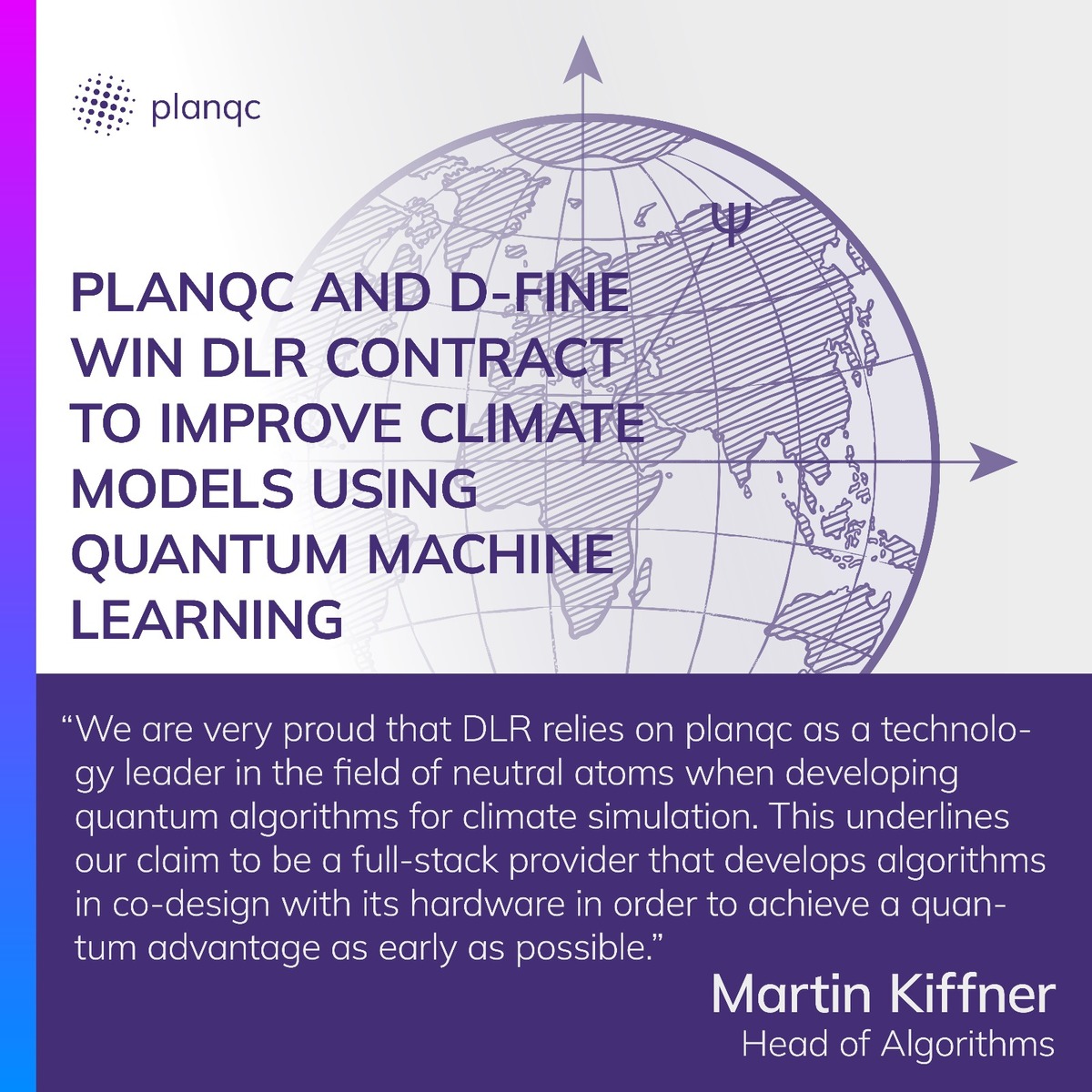
planqc and d-fine win contract to improve climate models using quantum machine learning
planqc and d-fine were commissioned by the German Aerospace Center (DLR) to improve climate models using innovative quantum machine learning techniques as part of the DLR Quantum Computing Initiative (DLR QCI). The contract is worth around one million euros and aims at enabling more precise climate predictions and robust strategies for mitigating the effects of climate change. For planqc, this is already the second order from DLR, after winning an international tender worth 29 million euros for building Europe's first digital quantum computer based on neutral atoms.
As pioneers in their respective fields, planqc and d-fine are combining their expertise to achieve groundbreaking advances in climate modeling together with researchers at the DLR Institute of Atmospheric Physics (DLR-IPA). Based in Munich's Quantum Valley, planqc was founded in 2022 by renowned scientists from the Max Planck Institute for Quantum Optics (MPQ) and the Ludwig Maximilian University of Munich (LMU). At the same time, d-fine has established itself as a leading European management consultancy for analytical topics, preparing companies and financial institutions for the upcoming quantum revolution. planqc and d-fine will improve climate models using quantum machine learning withing the DLR Klim-QML project, which is based at the DLR Institute of Atmospheric Physics and part of the DLR Quantum Computing Initiative (DLR QCI). This work intends to reduce climate forecast uncertainties such that recommended actions for combating the global climate crisis via policy changes in aviation, space travel, transport and energy become more reliable.
We are very proud that the DLR relies on planqc as a technology leader in the field of neutral atoms to develop quantum algorithms for climate simulation. This underlines our aspiration to be a full-stack provider, co-designing quantum algorithms and hardware for achieving a quantum advantage for our customers as early as possible,says Martin Kiffner, Head of Algorithms at planqc.
Martin Kiffner is considered one of the world's leading quantum technology experts. He recently moved from the University of Oxford to planqc, where he leads the quantum algorithm team. Together with the scientific advisors Prof. Dr. Dieter Jaksch (Oxford University and University of Hamburg) and Prof. Dr. J. Ignacio Cirac (Director at MPQ), planqc has a globally recognized quantum algorithms team that supports and consults customers in the implementation of quantum algorithms.
Combining machine learning and quantum computing for improving climate models is a highly innovative project with relevance in society as a whole. The fact that d-fine was selected together with planqc to support the DLR in this ambitious project confirms the company’s leading role in these disciplines. The d-fine team develops and implements quantum machine learning applications for various use cases, thereby pioneering this emerging new sector of the German economy. Improved climate models are crucial for making more precise predictions about climate developments. This helps to better understand the potential impacts of different aspects of the climate crisis, thereby enabling well-founded risk assessments regarding extreme weather events, sea level rise and other climate-related changes. Improved models are crucial for developing more effective adaptation and mitigation strategies for a better and more sustainable future.

 Back Home
Back Home